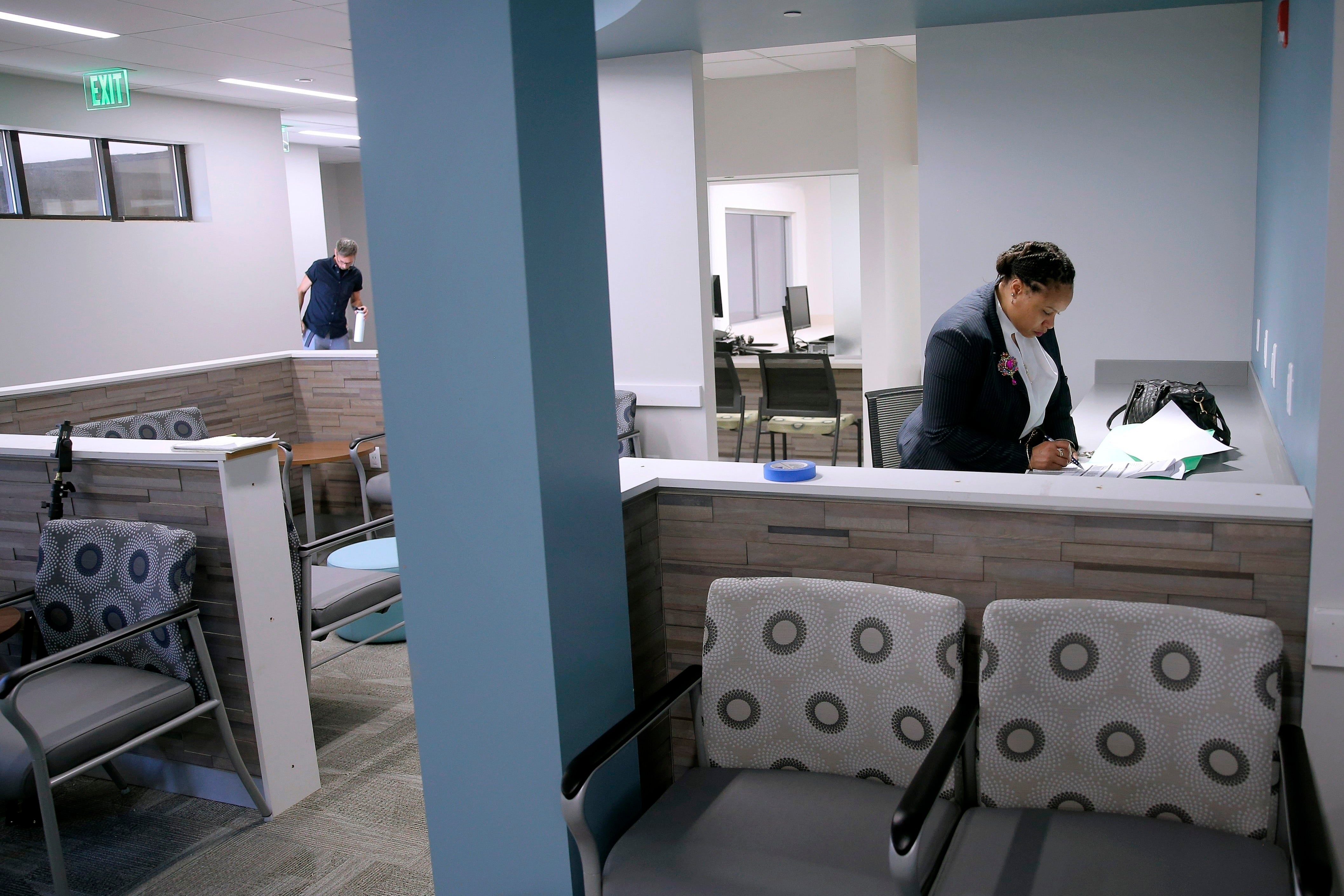Logistics center will help abortion seekers get to Illinois
With abortion access increasingly restricted across much of the South and Midwest, two Illinois clinics near St. Louis on Friday announced a new logistics center to help abortion seekers get to their clinics

Your support helps us to tell the story
From reproductive rights to climate change to Big Tech, The Independent is on the ground when the story is developing. Whether it's investigating the financials of Elon Musk's pro-Trump PAC or producing our latest documentary, 'The A Word', which shines a light on the American women fighting for reproductive rights, we know how important it is to parse out the facts from the messaging.
At such a critical moment in US history, we need reporters on the ground. Your donation allows us to keep sending journalists to speak to both sides of the story.
The Independent is trusted by Americans across the entire political spectrum. And unlike many other quality news outlets, we choose not to lock Americans out of our reporting and analysis with paywalls. We believe quality journalism should be available to everyone, paid for by those who can afford it.
Your support makes all the difference.With abortion access increasingly restricted across much of the South and Midwest, two Illinois clinics near St. Louis announced Friday that they set up a logistics center to help abortion seekers get to their clinics and help them pay for it.
The announcement came on the eve of the 49th anniversary of the Supreme Court s Roe v. Wade decision that established a nationwide right to abortion. Activists on both sides of the debate over abortion rights are convinced that the landmark ruling is imperiled, with nearly two dozen states likely to impose sweeping bans if the conservative-led court overturns it.
Texas Missouri and several other conservative-led states have already imposed new restrictions that have led some women to go to abortion-friendly states such as Illinois to get the procedure.
The new logistics center in Fairview Heights is operated by Planned Parenthood s abortion clinic in that Illinois suburb of St. Louis and the independent Hope Clinic for Women in nearby Granite City. The two cities are about 17 miles (27 kilometers) apart and are just across the Mississippi River from St. Louis.
The center, which opened quietly last month, helps women from outside of Illinois find travel, lodging and child care if they need help getting to the area for an abortion, and it connects them with funding sources.
Yamelsie Rodriguez, president and CEO of Planned Parenthood of the St. Louis Region and Southwest Missouri, said during a Zoom news conference that the flood of women arriving from elsewhere shows "that a post-Roe reality has already arrived in states like Missouri, Texas and the states in between.”
She said the pending Supreme Court decision might worsen the situation.
“If Roe is overturned, we expect to see 14,000 patients from outside our service area in the first year," Rodriguez said, noting that it would be about double the number that the two clinics typically see annually.
Illinois' Democratic governor, J.B. Pritzker, said every state bordering Illinois — Wisconsin, Iowa, Missouri, Kentucky and Indiana — is expected to ban or restrict abortions if the Supreme Court allows it, and that he wants to ensure that Illinois becomes “a refuge for reproductive rights.”
Hope Clinic for Women has been around since 1976. The Planned Parenthood facility opened just over two years ago, partly in response to increasingly restrictive anti-abortion measures in neighboring Missouri, which has just one abortion clinic, a Planned Parenthood facility in St. Louis. Missouri's Republican governor, Mike Parson, signed legislation in May banning abortions starting in the eighth week of pregnancy, with exceptions for medical emergencies but not for cases of rape or incest.
Both Illinois clinics near St. Louis are also seeing increasing caseloads from Tennessee, Kentucky, Arkansas, Oklahoma, Louisiana, Indiana, and Texas.
The Texas law adopted last year bans abortions once medical professionals can detect cardiac activity, which is typically around the sixth week and before some women even know they are pregnant.
Fund Texas Choice is among the groups seeking to help women end their pregnancies in other states. The group's chief operating officer, Rebecca Dreke, said it used to field about 50 calls per week. Since the new law took effect, though, that number has doubled.
“We are incredibly inundated with requests for assistance," Dreke said.
The effort to help coordinate travel and lodging for women seeking abortions isn't unique to Illinois.
Last month, California clinics and their allies in the Legislature unveiled a plan to make the state a “sanctuary” for those seeking reproductive care, including possibly paying for travel, lodging and procedures for people from other states.
The new center in Illinois is funded through grants and donations.